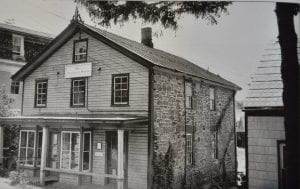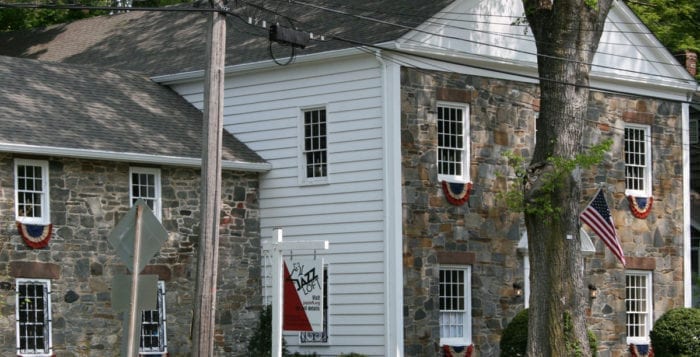Gardiner Foundation Awards $40K to The Jazz Loft
Tom Manuel, founder of The Jazz Loft in Stony Brook, is always grateful when someone comes along and offers a helping hand, but during the pandemic, his gratitude is overflowing.

Before New York State’s mandatory shutdowns, the Robert David Lion Gardiner Foundation awarded The Jazz Loft a grant in the amount of $40,000 to match funds coming from local resident and patron Dan Oliveri.
The money is being used to renovate the southwest section of the basement, which is under the Old Stone Jug area of the venue. The undertaken has been dubbed Project Coal Bin, Manuel said. While the basement dates back to 1941, the Old Stone Jug was built in approximately 1770. The grant also covers equipment needed to archive information.
“What’s exciting is it’s going to be a multipurpose space where the grant was designed not just to redesign the space but to outfit it as an area that will be used for our archiving,” The Jazz Loft founder said.
He added that the Stony Brook University Department of Computer Science worked last year to design the computer programming for the archiving, which will open up doors for other grants in the future for additional archiving and preservation.
“It’s amazing how a group like the Gardiner foundation could allow so many great things to happen even indirectly after their grant is done,” he said.
He called RDLGF a lifeline for nonprofits and a “blessing for people on Long Island.” The admiration is mutual.

“The Jazz Loft is an exceptional organization that engages the community on many levels,” said Kathryn Curran, executive director of the RDLGF. “The adaptive reuse of their historic building brings new and inventive life to this early structure celebrating the history of jazz through performances and art and artifacts.”
While the grant process was lengthy, Manuel said it was an excellent experience for him where before the pandemic he sat in on a grant-writing workshop given by Curran, and was able to exchange ideas with others. He said it was inspiring to learn about grants and the bigger picture of the longevity of nonprofits and the history of Long Island.
“After a while you realize, wow, it’s not so much about me writing this grant anymore,” he said. “It’s about The Jazz Loft being here for 100 years. This is about being responsible with what has been entrusted to me.”
Manuel also praised RDLGF for the funds they granted to nonprofits during the pandemic. Curran said the board was aware of the new problems nonprofits faced in 2020, and in June the board members approved a limited reimbursement grant to historical societies. The grants were intended to help organizations cover expenses during unscheduled closings. In total, RDLGF awarded more than $63,000 to help pay bills over a three-month period.
As for Project Coal Bin, Manuel said work began a couple of months ago. He indicated before major construction could begin, the old drop ceiling had to be removed in the section of the basement, while the plumbing and the electrical system needed to be updated. Manuel said when a person is downstairs and looks up, the hand-hewn beams of the Old Stone Jug are now visible after 80 years following the removal of a plaster ceiling.
The section of The Jazz Loft is called the Old Stone Jug due to its facade and was added by philanthropist Ward Melville, who moved the structure from its original location and made it an addition to what was once the original Stony Brook firehouse. It was then used as the Suffolk Museum, the forerunner of The Long Island Museum. Before it was moved, the Old Stone Jug, through the decades, was utilized for town meetings, operated as a tin shop and was used to store molasses jugs.
Manuel said they named the new section of the basement the Coal Bin after a former establishment in Southampton called Bowden Square. The owner Herb McCarthy’s mother would cook southern food and play jazz music for Black patrons in the basement, called the Coal Bin, during a time when Southampton was segregated.
Manuel said renovations in The Jazz Loft basement are projected to be completed before the end of the year.







